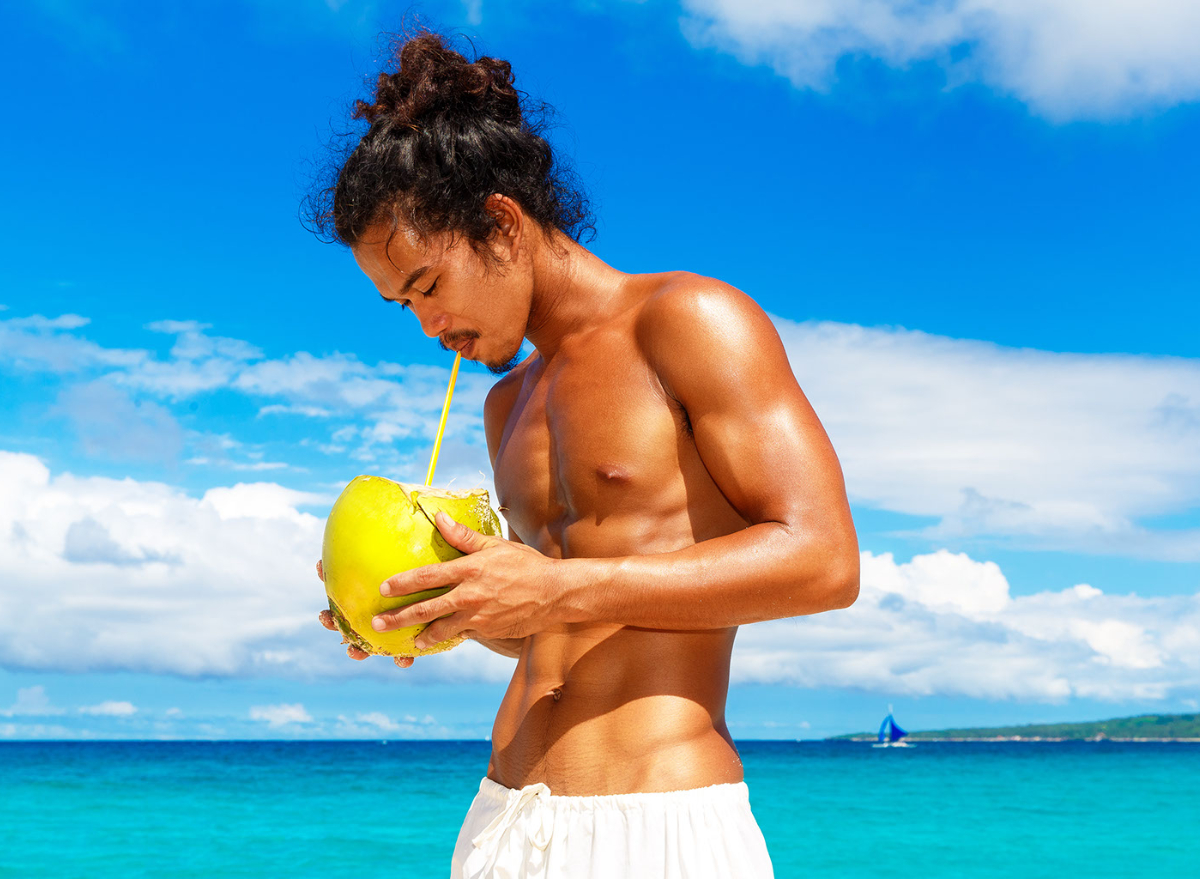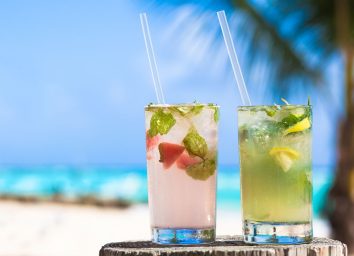One Major Side Effect of Drinking Coconut Water, According To Experts

For years now, coconut water brands have been thought to deliver the ultimate hydration benefits (yes, including for a hangover). That's not entirely so, a registered dietitian has just warned. If you're not sure of exactly what you're buying, coconut water can lead to one rather undesirable effect.
Registered dietitian Lizzie Streit, M.S., R.D., L.D.N., has explained to Healthline that while coconut water is a natural source of minerals that provide hydration, it can have one uncomfortable effect.
Coconut water contains sodium, calcium, potassium, and magnesium, which all "act as electrolytes to help maintain proper fluid balance in your body," Streit says. She also points to a 2018 study that suggested mature coconuts, compared to younger ones, provide the most beneficial amount of those hydrating minerals.
However, in some cases, drinking coconut water and other electrolyte products, like sports drinks, can lead to diarrhea. Huh? It's true: The very drink that you pick up to quench your dehydration can actually lead to a symptom that provides the opposite effect.
Streit explains that it all has to do with how natural your coconut water or hydrating beverage really is: "Sports drinks and similar beverages aimed at rehydration also contain electrolytes but are typically made with added sugars and food dyes." She adds: "Some commercial varieties of coconut water may also contain sweeteners and flavorings."
To examine a few commercial coconut water brands: Zico, which in recent years has been dropped by Coke, actually lists pure coconut water on its ingredient label, while some varieties of Vita Coco list added sugar and Vitamin C. That all sounds fine.
Meanwhile, Bai's coconut water contains a whole list of ingredients, including erythritol. As Talia Hauser, R.D., L.D.N. recently told Eat This, Not That!: "Erythritol is … used in many sugar-free products. It is considered a sugar alcohol, which also means it's not digested, but at high intakes can cause [gastrointestinal] upset and diarrhea because of the way it travels through the colon."
So if you're drinking coconut water to hydrate your body, it's important (as it is with most foods!) to look at the ingredients—because if it's not coming straight from the coconut, it's got to be close. (It also might not hurt to be mindful of what some researchers believe is a result of drinking from a can). For more information, check out We Tried 7 Coconut Waters and This Is the Best One.
Sign up for the Eat This, Not That! newsletter for the nutrition news you can use, and keep reading:








